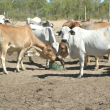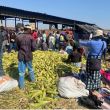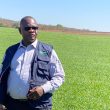ZIMBABWE is preparing to host the 15th Conference of the Parties (COP15) to the Ramsar Convention on Wetlands, from the 23rd of July up to the 31st of July, the first ever to be hosted in Southern Africa.
To raise awareness on the importance of wetlands and to boost community participation in their protection and sustainable management, a campaign titled: “Voices of Zimbabwe on Wetlands”, was recently launched.
The campaign Voices of Zimbabwe on Wetlands Campaign incorporates the voices of local communities – not just a specific class of community, but communities from all over Zimbabwe – the real people who protect and live in these spaces every day.
The project was launched by Zimbabwe’s Parliament supported by DanChurchAid and Conservation Conversations with Birdlife Zimbabwe and other stakeholders coming in as supporting partners.
“We must appreciate the ecological, human, and economic consequences of climate change, including drought, which have led to significant wetland losses, and we must recognize the crucial role citizens and authorities must play as stewards in wetland restoration and protection, in line with the COP15 theme: ‘Protecting Wetlands for our Common Future,’” according to DanChurchAid Country Director, Mads Lindegard.
Parliamentary Portfolio Committee on Environment, Climate and Wildlife, Sam Matema, said parliament is investing in participating in the process aimed at amplifying the Zimbabwean voices by adopting a whole society approach where everyone has to take an active role in terms of having conversations around wetlands.

“Wetlands are key and critical. We are talking about the kidneys of the environment. From the roles that they play, their provision role, they provide their sources of water, sources of food, important ecosystems for flora and fauna. They also regulate, in the age of climate change and the attendant shocks, they regulate flooding across ecosystems,” said Matema.
“They also play a key role, which is cultural, in certain jurisdictions where we bring in our village science, our village wisdom, our indigenous ways of knowing from the indigenous knowledge systems perspective. Therefore, everyone has to play a key and critical role in the full knowledge and realisation that right from creation we were charged to work the land and take care of it. That was the biggest responsibility that we were given.”
Matema was speaking during a tour of Cleveland Dam, Monavale vlei and Lake Chivero, organised by DanChurchAid and Conservation Conversations, in partnership with BirdLife Zimbabwe and other partners.
“The feedback that we got is that collectively we need to attend to certain pieces of legislation as parliament so that we plug the holes that we have identified. We picked that local authorities are letting us down as a country from a spatial planning perspective. As we play our oversight role, we are going to call for an all-stakeholder meeting with all portfolio committees that have something to do with preservation of this very important asset and work with local authorities around spatial planning and making use of the important information that we got from the Environmental Management Agency (EMA),” added Matema.
Managing wetlands is a global challenge and the Convention presently counts 172 countries as Contracting Parties, which recognize the value of having one international treaty dedicated to a single ecosystem.
The Convention uses a broad definition of wetlands. This includes all lakes and rivers, underground aquifers, swamps and marshes, wet grasslands, peatlands, oases, estuaries, deltas and tidal flats, mangroves and other coastal areas, coral reefs, and all human-made sites such as fish ponds, rice paddies, reservoirs and salt pans.











